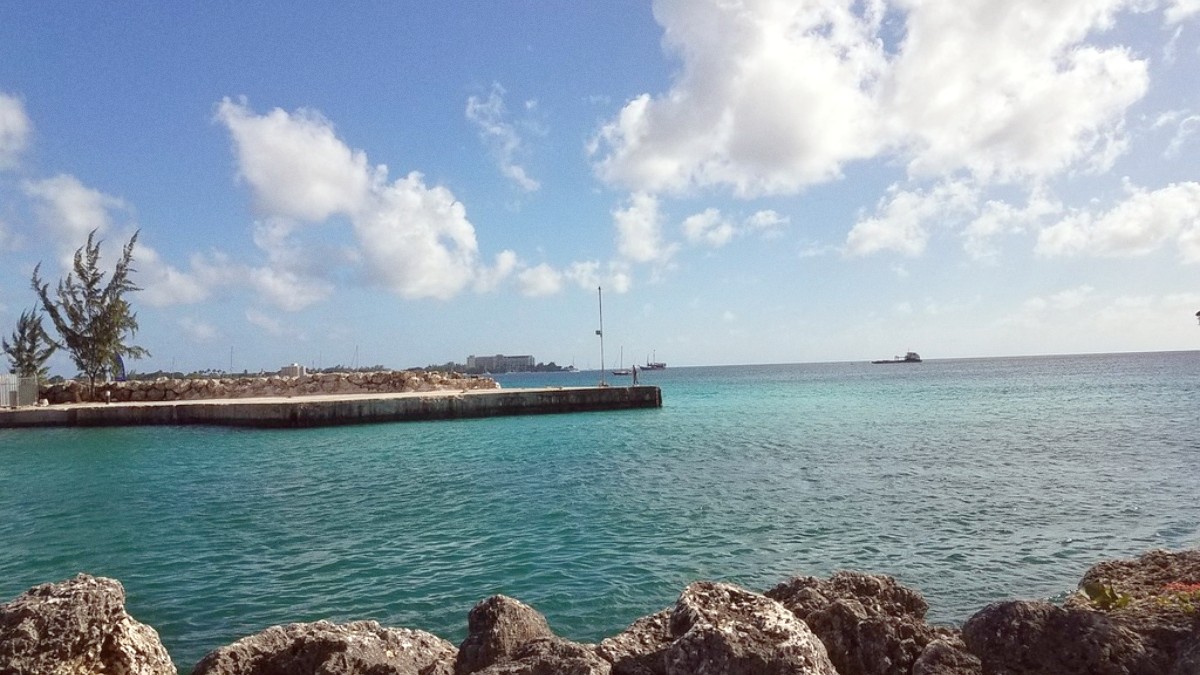
Barbados
During the dry season (December to May), you will experience lower humidity, significantly less rainfall, and abundant sunshine. Average daily temperatures range from a comfortable 24°C to 30°C (75°F to 86°F). The trade winds are especially invigorating. Clear skies and calm seas are common, offering ideal conditions for beach days and water sports.
The wet season (June to November) brings higher humidity and more frequent, heavier rainfall. Showers often occur as short, intense bursts, typically lasting only a few minutes to an hour, quickly followed by sunshine. Average daily temperatures remain warm, ranging from 25°C to 31°C (77°F to 88°F). The wet season transforms the island into a lush, green paradise.
This season brings higher humidity and more frequent, heavier rainfall. Showers often occur as short, intense bursts, quickly followed by sunshine.
Average daily temperatures remain warm, ranging from 25°C to 31°C (77°F to 88°F). The wet season transforms the island into a lush, green paradise.
Mid-December to May
Superb weather, island activity, full services.
Higher prices, more crowds at beaches and attractions.
May to June, November to Mid-December
Good weather, fewer crowds, excellent value.
Less predictable weather, higher chance of showers.
July to October
Lowest prices for flights and accommodation, less crowded.
Higher humidity, frequent rainfall, risk of tropical storms.
Barbados sits within the Atlantic hurricane belt. The official hurricane season spans from June 1 to November 30. The highest risk for tropical storms typically falls between August and October.
Although direct hits on Barbados are rare, tropical weather can disrupt travel. Stay informed by monitoring local weather forecasts and local advisories.
Dry season (December-May) for calm, clear waters.
Dry season for comfortable, cooler conditions.
July-August for lively street parties and music.
February to April for humpback whales.
Low season for an unique cultural experience during Crop Over.
Barbados maintains a welcoming, liberal visa policy for many nationalities.
Citizens of the US, Canada, UK, most EU, and CARICOM states generally do not require a visa for up to six months.
Prepare these documents for smooth entry.
Barbados does not impose general entry fees for tourists. Upon arrival at Grantley Adams International Airport (BGI), proceed to immigration.
Present your passport and completed Immigration/Customs form. They may ask about visit purpose, stay length, and accommodation.
Mandatory if from a risk country (1 year+ travelers).
Consult doctor 4-6 weeks prior for recommendations.
Prevent traveler's diarrhea, manage sun exposure.
Follow any official health advisories during your visit.
Comprehensive travel insurance covers medical evacuation.
Barbados can be an expensive destination, but strategies exist to suit different budgets.
Official currency is Barbadian Dollar (BBD), fixed at 2 BBD to 1 USD. US Dollars are widely accepted in tourist areas.
Make your budget stretch further with these tips.
Daily Costs: BBD $150-300 (USD $75-150). Accommodation: BBD $80-150 (guesthouse, hostel). Food: BBD $40-80 (street food, cook shops). Transport: BBD $4-20 (public buses). Activities: BBD $20-50 (free beaches, walking tours).
Daily Costs: BBD $300-600 (USD $150-300). Accommodation: BBD $150-300 (mid-range hotel, apartment). Food: BBD $80-200 (casual restaurants, happy hour). Transport: BBD $20-60 (mix of public and occasional taxi). Activities: BBD $50-100 (museums, distillery tour).
BBD $800+ (USD $400+).
BBD $400+ (luxury resorts, private villas).
BBD $200+ (fine dining, private chef services).
BBD $100+ (private transfers, consistent taxis, rental car).
BBD $100+ (private tours, catamaran cruises, golf, spa).
Barbados is generally a safe destination, but awareness and preparation are always important.
Yellow Fever certificate mandatory if from risk country. Consult a travel health professional for routine recommendations.
Good standard of healthcare. Queen Elizabeth Hospital (public) and private clinics. Pharmacies are available.
Tap water in Bridgetown is generally safe to drink. Exercise caution with street food; ensure it is hot and freshly prepared.
Mosquito-borne illnesses (Dengue, Chikungunya, Zika) are present. Sunburn and heatstroke are risks.